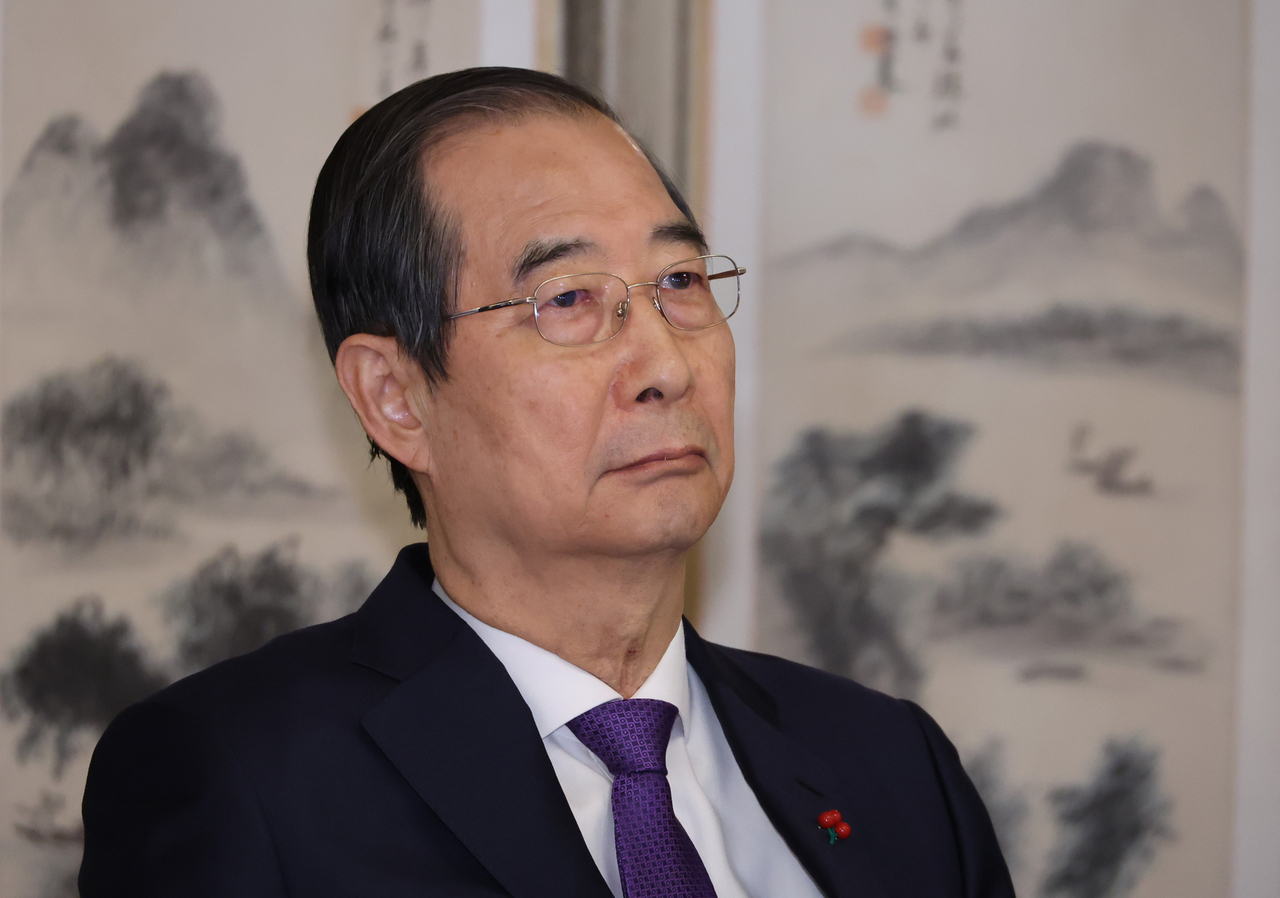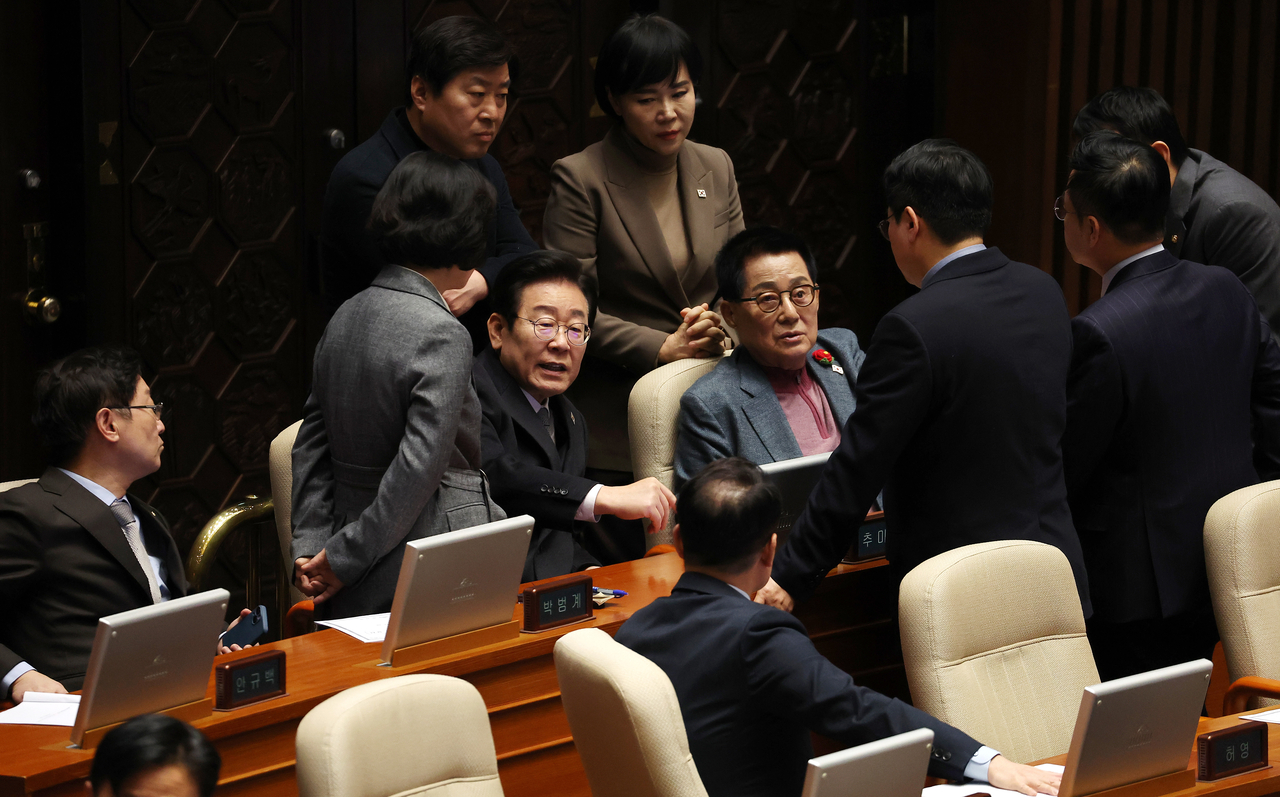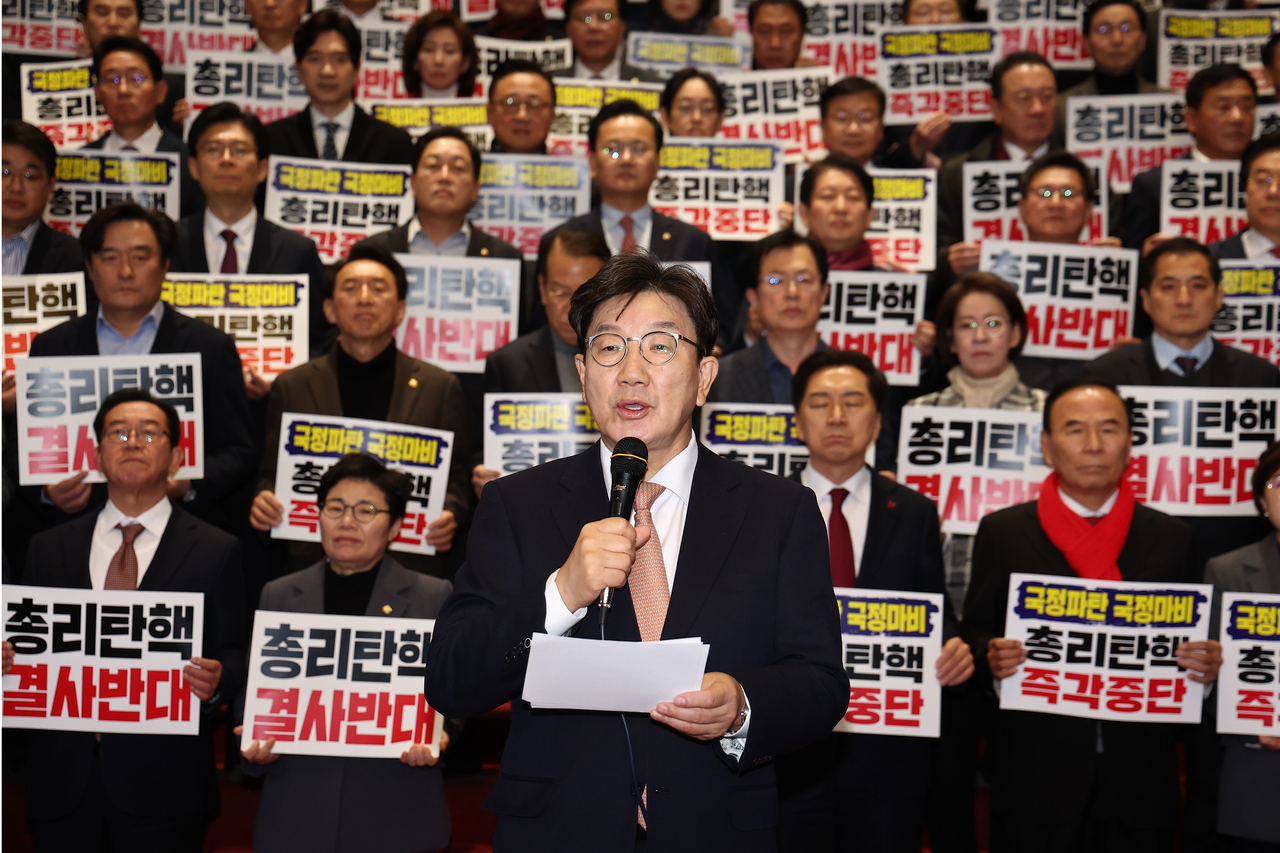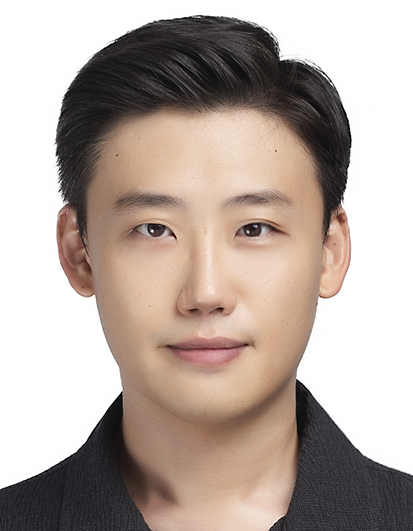
The main opposition Democratic Party of Korea on Thursday pledged to impeach acting President Han Duck-soo in a vote on Friday, after the prime minister refused to appoint any justice nominees for President Yoon Suk Yeol's impeachment trial without bipartisan agreement.
If the impeachment motion passes on Friday, Han will have his duties as both the prime minister and acting president suspended, with Deputy Prime Minister and Minister of Strategy and Finance Choi Sang-mok taking over both roles.
Having an acting president suspended will be an unprecedented case in South Korea's history. It also opens another intense political standoff as the ruling party strongly opposes the impeachment of Han but also the appointment of Constitutional Court judges, while the opposition aims to fill the vacancies in the court to lower hurdles for Yoon's impeachment.
Describing the acting president as an "accomplice" to President Yoon's martial law imposition on Dec. 3, the Democratic Party on Thursday filed a motion to impeach Han.
Rep. Jo Seoung-lae, senior spokesperson of the Democratic Party, said the party would "work to impeach Prime Minister Han tomorrow to restore South Korea's constitutional order and stabilize state affairs." As the impeachment motion was reported to the opposition-controlled National Assembly's main chamber at 2:07 p.m., Thursday, the vote can technically start within 24 hours at the earliest.
The ruling People Power Party Floor Leader Rep. Kweon Seong-dong blasted the main opposition party for attempting to "paralyze South Korea's diplomacy with the United States and the Japan," adding his party would not tolerate the impeachment attempt which he described as slipshod, retaliatory and meant to overthrow the government.
However, as of press time, decisions over what time the impeachment trial would take place or how many votes are required for Han's impeachment were not immediately available.
National Assembly Speaker Rep. Woo Won-shik has the final say about Han's impeachment threshold amid mixed views over whether it should be 151 votes or 200 votes, given that Han serves as both acting president and prime minister. No Constitutional Court precedents exist over the threshold for an acting president's impeachment.

This came as the main opposition Democratic Party of Korea, which holds 170 of the 300 parliamentary seats at the National Assembly, led the bill passage to nominate candidates for three new Constitutional Court justices on Thursday. Only four of the ruling People Power Party's 108 lawmakers were present at the voting following the party's boycott Thursday.
Of all 195 lawmakers who took part in the vote, Jeong Gye-seon, who leads the Seoul Western District Court, and Ma Eun-hyuk, a senior judge at the Seoul Western District Court, both earned 193 votes in favor, whereas Cho Han-chang, attorney at South Korean law firm Doul, gained the parliamentary approval in the 185-6 vote.
Minutes before the parliamentary vote, Han said in an address to the nation that the bipartisan compromise is a prerequisite for his appointment of new justices.
"I will hold off making my decision to appoint new Constitutional Court justices until the ruling and main opposition parties reach a compromise concerning the justice nominees," Han said, "I will appoint new justices immediately with a bill backed by the bipartisan compromise."
Han claimed that his use of executive power to appoint new Constitutional Court justices without bipartisan agreement, at a time of power vacuum with Yoon impeached, "could subvert the constitutional order."
He also invoked a precedent, in which Hwang Kyo-ahn, who was formerly acting president when disgraced ex-president Park Geun-hye was impeached in 2016, held off his decision to appoint a Constitutional Court justice while the court had eight sitting justices. Han said Hwang's refusal then was based on the principle that it could otherwise affect the outcome of the impeachment court verdict.
However, National Assembly Speaker Woo, who was elected as a Democratic Party lawmaker in April, refuted Han's remarks by saying that Han's proposal signals a breach of the National Assembly's power to nominate court justice candidates.
"(Han) cannot provide any rationale for a delay or a refusal to appoint (court justices)," Woo said. "The acting president must fulfill his duty from the standpoint of common sense."
In South Korea, a president has the power to appoint all nine Constitutional Court justices, but among them, three must be appointed upon the Supreme Court Chief Justice's recommendation, and another three must be named by the National Assembly.
In this regard, Han's approval should be seen as a mere formality that needs to be observed, instead of an attempt to change a constitutional order, Woo added.

Earlier on Tuesday, the opposition party confirmed three justice nominees recommended after Yoon's martial law imposition. The main opposition parties proposed Jeong and Ma, while the ruling party named Cho as their pick.
Opposition parties anticipate that its move to fill in Constitutional Court vacancies will lower the hurdles for President Yoon's impeachment.
A minimum of six justices must decide to affirm the impeachment motion to remove the incumbent president, who is suspended from his position in the aftermath of his short-lived martial law imposition on Dec. 3.
The Constitutional Court currently has only six sitting justices, meaning a unanimous decision is the only option to finalize Yoon's impeachment.
The addition of three justices, on the other hand, would allow the court to uphold the impeachment motion even with three dissenters.
Kweon of the People Power Party told reporters Thursday that the opposition-controlled National Assembly's decision to railroad the bill to fill the court vacancies, through what the ruling bloc has often described as the main opposition's parliamentary dictatorship, could "greatly undermine the fairness in the impeachment trial" and "nullify the court deliberation on (Yoon's) impeachment motion."
Kweon also said the National Assembly's recommendation of new justices "is equivalent to the prosecutor's recommendation of the court judges."




